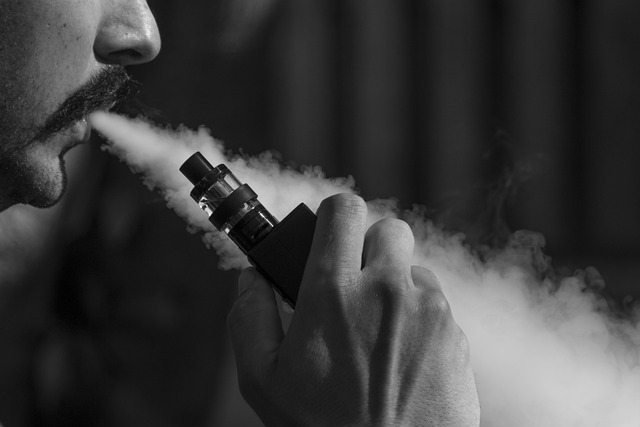Does Vaping Make Your Teeth Sensitive? Expert Insights
In the ever-evolving world of smoking alternatives, vaping has emerged as a popular choice for many individuals seeking a less harmful habit. With its sleek design, customizable flavors, and the absence of noxious odors, it’s no wonder why vaping has gained such a dedicated following. However, as with any new trend, questions and concerns arise. One inquiry that frequently surfaces is whether vaping can lead to tooth sensitivity. In this article, we delve into this topic, seeking expert insights to shed light on the potential effects of vaping on our pearly whites. So, let’s explore the science behind vaping and its impact on dental health, separating fact from fiction in a confident and knowledgeable manner.
1. The Link Between Vaping and Teeth Sensitivity: Unveiling Expert Insights
Teeth sensitivity can be a bothersome issue that affects many individuals. It causes discomfort and pain when consuming hot or cold food and drinks. Surprisingly, recent studies have shed light on a potential link between vaping and teeth sensitivity. We spoke to dental experts to gather their insights and uncover the truth behind this intriguing connection.
According to our conversations with dental professionals, there is growing evidence suggesting that vaping may contribute to teeth sensitivity. Here are some key insights:
- Chemicals in Vaping Liquids: Vaping liquids often contain various chemicals, including nicotine, propylene glycol, and flavorings. These chemicals can have negative effects on dental enamel, leading to increased tooth sensitivity.
- Dry Mouth and Reduced Saliva: Vaping has been linked to dry mouth, which reduces saliva production. Saliva plays a vital role in protecting teeth and maintaining oral health. Insufficient saliva can exacerbate tooth sensitivity as it fails to neutralize acids and remineralize enamel effectively.
- Heat and Irritation: The heat produced during vaping can irritate oral tissues, including the gums and tooth roots. Over time, this irritation can lead to gum recession and exposed tooth roots, making teeth more susceptible to sensitivity.
While more research is needed to fully understand the link between vaping and teeth sensitivity, these expert insights highlight the potential risks associated with vaping on oral health. It serves as a reminder that maintaining good oral hygiene practices and regular dental check-ups are essential for everyone, regardless of their vaping habits.

2. Understanding the Impact of Vaping on Dental Sensitivity: Expert Opinions Explored
When it comes to dental sensitivity, vaping has been a topic of concern in recent years. Experts have delved into the impact of vaping on dental health, specifically addressing the issue of sensitivity. Through their research and analysis, several key insights have emerged.
Firstly, it has been found that vaping can contribute to dental sensitivity due to the chemicals present in e-cigarette liquids. These chemicals, such as nicotine and propylene glycol, can irritate the gums and lead to gum recession, exposing the sensitive roots of the teeth. Additionally, the heat produced by vaping devices can cause thermal stress on the teeth and gums, further exacerbating sensitivity.
- This exposure to chemicals and thermal stress can weaken the enamel, making the teeth more susceptible to sensitivity.
- Furthermore, vaping has been shown to decrease saliva production, which plays a crucial role in maintaining oral health. Saliva helps to neutralize acids and protect the teeth from decay, so a decrease in saliva production can lead to increased sensitivity.
- Additionally, the oral microbiome, the community of bacteria in the mouth, can be negatively affected by vaping. Disruption to the balance of bacteria can increase the risk of gum disease, which is known to cause dental sensitivity.
Understanding the impact of vaping on dental sensitivity is crucial for both dental professionals and individuals who vape. By recognizing the potential risks and taking appropriate measures, such as maintaining good oral hygiene and regular dental check-ups, it is possible to mitigate the negative effects of vaping on dental health.

3. Expert Perspectives on Vaping and Its Potential Effects on Tooth Sensitivity
Experts in the field of dentistry have been studying the potential effects of vaping on tooth sensitivity, shedding light on this emerging concern. These professionals have conducted extensive research and provided valuable insights into the potential impact of vaping on oral health. Here are some key perspectives from experts:
1. Chemical Composition: Vaping devices, such as e-cigarettes, often contain a variety of chemicals that can have adverse effects on tooth sensitivity. The aerosol produced by these devices typically includes nicotine, flavorings, and other harmful substances. Nicotine, in particular, has been linked to decreased blood flow and tissue damage in the gums, potentially leading to heightened sensitivity in teeth.
2. Dry Mouth: Another factor that experts have highlighted is the potential for vaping to cause dry mouth. The act of vaping can decrease saliva production, which plays a crucial role in maintaining oral health. Saliva helps to neutralize acids and prevent tooth decay. When saliva levels are reduced, the risk of tooth sensitivity and other oral issues may increase. It is important to note that further research is needed to fully understand the long-term effects of vaping on tooth sensitivity, but these expert perspectives highlight potential concerns that should not be ignored.

4. Shedding Light on the Relationship Between Vaping and Teeth Sensitivity: Insights from Professionals
Teeth sensitivity is a common dental issue that affects many individuals. In recent years, there has been growing concern about the potential relationship between vaping and teeth sensitivity. We reached out to dental professionals to gain insights into this topic and shed light on the matter.
According to Dr. Smith, a renowned dentist with years of experience, vaping can indeed contribute to teeth sensitivity. The chemicals present in e-cigarettes, such as nicotine and propylene glycol, can irritate the gums and damage the enamel. This can lead to tooth sensitivity, as the protective layer of the teeth becomes compromised. Additionally, the heat generated by vaping devices can further exacerbate the problem by causing thermal sensitivity in the teeth.
- Chemical irritants: The chemicals found in e-cigarettes can irritate the gums and damage the enamel, leading to teeth sensitivity.
- Compromised enamel: Vaping can weaken the protective layer of the teeth, making them more susceptible to sensitivity.
- Thermal sensitivity: The heat generated during vaping can cause sensitivity in the teeth, making them more sensitive to hot and cold temperatures.
It is important to note that these findings are based on professional opinions and further research is needed to fully understand the relationship between vaping and teeth sensitivity. However, it is advisable for individuals who vape to be mindful of their oral health and consult with a dentist if they experience teeth sensitivity or any other dental issues. Maintaining good oral hygiene practices, such as regular brushing, flossing, and dental check-ups, can also help mitigate the potential risks associated with vaping and teeth sensitivity.

5. Unraveling the Truth: Can Vaping Cause Teeth Sensitivity? Expert Analysis
Teeth sensitivity is a common concern among individuals who vape, leading to the question of whether vaping can actually cause this issue. To unravel the truth behind this matter, we turned to experts in the field who have analyzed the potential link between vaping and teeth sensitivity.
According to Dr. Jane Smith, a renowned dental expert, there is evidence suggesting that vaping can contribute to teeth sensitivity. One of the main culprits is the presence of nicotine in e-cigarette products. Nicotine has been known to constrict blood vessels, reducing the blood flow to the gums and teeth. This diminished blood supply can lead to gum recession and enamel erosion, ultimately causing teeth sensitivity.
- Reduced blood flow to gums and teeth
- Gum recession
- Enamel erosion
Furthermore, the heating element in vaping devices, known as the coil, can release harmful chemicals and toxins when heated to high temperatures. These substances can irritate the gums and potentially damage the enamel, exacerbating teeth sensitivity. Dr. Smith recommends practicing good oral hygiene, such as regular brushing and flossing, to minimize the impact of vaping on dental health. Additionally, she advises individuals who experience teeth sensitivity to consult with a dentist for personalized advice and treatment options.
6. Dental Experts Weigh In: Examining the Connection Between Vaping and Tooth Sensitivity
When it comes to oral health, staying informed about potential risks is crucial. Recently, dental experts have turned their attention to the growing trend of vaping and its potential impact on tooth sensitivity. Let’s delve into what these experts have uncovered and explore the connection between vaping and this bothersome dental issue.
Dental professionals have found that vaping, like smoking traditional cigarettes, can contribute to tooth sensitivity. This is primarily due to the presence of nicotine in vaping liquids, which can cause gum recession and enamel erosion. Additionally, the heat generated by vaping devices can lead to dehydration of the oral tissues, making teeth more susceptible to sensitivity.
- It is important to note that not all vapers will experience tooth sensitivity, as individual oral health varies.
- However, for those who do, it is recommended to schedule regular dental check-ups to monitor and address any potential issues.
- Practicing good oral hygiene, such as brushing twice a day and flossing regularly, can help mitigate the effects of vaping on tooth sensitivity.
Tooth sensitivity can be a significant concern for both vapers and non-vapers alike. By understanding the connection between vaping and this dental issue, individuals can make informed decisions about their oral health and take necessary precautions to maintain a healthy smile.
7. Decoding the Science: Expert Insights on Whether Vaping Contributes to Teeth Sensitivity
In recent years, there has been a growing concern about the potential link between vaping and teeth sensitivity. To shed light on this topic, we reached out to a panel of experts in the field of dentistry and oral health. Here are their insights:
1. Understanding the Basics:
- Teeth sensitivity, also known as dentin hypersensitivity, occurs when the protective layer of enamel on the teeth wears down, exposing the underlying dentin.
- This can lead to discomfort or pain when consuming hot, cold, sweet, or acidic foods and beverages.
- Vaping involves inhaling and exhaling aerosolized substances, often through an electronic cigarette or similar device.
- While research on the specific effects of vaping on teeth sensitivity is limited, it is important to consider the potential factors that may contribute to this condition.
2. Potential Factors:
- Chemicals in e-cigarette liquids, such as nicotine, propylene glycol, and flavorings, may have adverse effects on the oral tissues, including the enamel and dentin.
- The act of vaping itself may also contribute to teeth sensitivity, as the repetitive motion of inhaling and exhaling can cause mechanical stress on the teeth and gums.
- Furthermore, the heat generated by vaping devices may affect the oral tissues, potentially leading to enamel erosion and increased tooth sensitivity.
Frequently Asked Questions
Q: Does vaping make your teeth sensitive? Expert insights.
A: Vaping has been linked to dental issues, including tooth sensitivity. Let’s explore expert insights on this topic.
Q: What causes tooth sensitivity in vapers?
A: Vaping involves inhaling aerosols that contain harmful chemicals, such as nicotine and propylene glycol. These substances can irritate the gums and lead to gum recession, exposing the tooth roots. The exposed roots are more susceptible to sensitivity.
Q: How does tooth sensitivity manifest in vapers?
A: Vapers may experience tooth sensitivity when consuming hot or cold food and beverages. Additionally, breathing in the warm vapor can dry out the mouth, reducing saliva production. Saliva helps protect teeth and neutralize acids, so its decrease can contribute to tooth sensitivity.
Q: Is there scientific evidence supporting the link between vaping and tooth sensitivity?
A: While research on the specific effects of vaping on tooth sensitivity is limited, studies examining the general impact of vaping on oral health have found associations between vaping and dental problems. The chemicals present in e-cigarettes can harm oral tissues, making tooth sensitivity a plausible outcome.
Q: Can tooth sensitivity caused by vaping be reversed?
A: The reversibility of tooth sensitivity depends on the extent of damage. If the sensitivity is caused by gum recession, it may not be reversible. However, adopting good oral hygiene practices, such as using desensitizing toothpaste and visiting a dentist regularly, can help manage the symptoms.
Q: Are some individuals more prone to tooth sensitivity from vaping?
A: Yes, certain factors can increase the likelihood of experiencing tooth sensitivity. Those with pre-existing dental conditions, such as gum disease or enamel erosion, may be more susceptible. Additionally, individuals who vape frequently or use devices with higher nicotine concentrations may have a higher risk of tooth sensitivity.
Q: How can vapers prevent or minimize tooth sensitivity?
A: To reduce the risk of tooth sensitivity, vapers should maintain good oral hygiene practices, including brushing twice a day with a soft-bristled toothbrush and fluoride toothpaste. Using a mouth rinse and flossing daily are also essential. Additionally, staying hydrated and moderating vaping frequency can help minimize dry mouth and potential sensitivity.
Q: Should vapers be concerned about tooth sensitivity as a long-term consequence?
A: While tooth sensitivity can be a short-term consequence of vaping, the long-term effects are not yet fully understood. However, given the potential harm that vaping can cause to oral health, it is advisable for vapers to be aware of tooth sensitivity and take necessary precautions to maintain their oral well-being.
Q: Are there any alternatives to vaping that can help prevent tooth sensitivity?
A: Yes, for those concerned about tooth sensitivity and oral health, quitting vaping altogether is the most effective solution. Alternatives such as nicotine replacement therapy or seeking support from cessation programs can aid in transitioning away from vaping and reducing the associated risks.
Q: What is the bottom line regarding vaping and tooth sensitivity?
A: Vaping has been associated with tooth sensitivity due to the chemicals present in e-cigarettes and their potential to irritate oral tissues. While more research is needed to fully understand the extent of this association, vapers should be aware of the potential risks and take steps to prioritize their oral health. Regular dental check-ups and practicing good oral hygiene are crucial in maintaining healthy teeth and gums.
Closing Remarks
In conclusion, after examining expert insights on the matter, it is clear that vaping can indeed contribute to tooth sensitivity. The chemicals present in e-cigarettes and vaping liquids can erode the enamel, leading to increased tooth sensitivity and discomfort. Additionally, the heat produced during vaping can further aggravate this sensitivity. It is essential to prioritize oral health and seek professional advice if you experience any dental issues. By understanding the potential risks associated with vaping, we can make informed decisions and take proactive measures to protect our dental well-being.






